Belousov’s Appointment Exposes a Structural Crisis in Putin’s MOD
Putin’s difficulties are plenty and mounting
By Vladimir Milov June 04, 2024
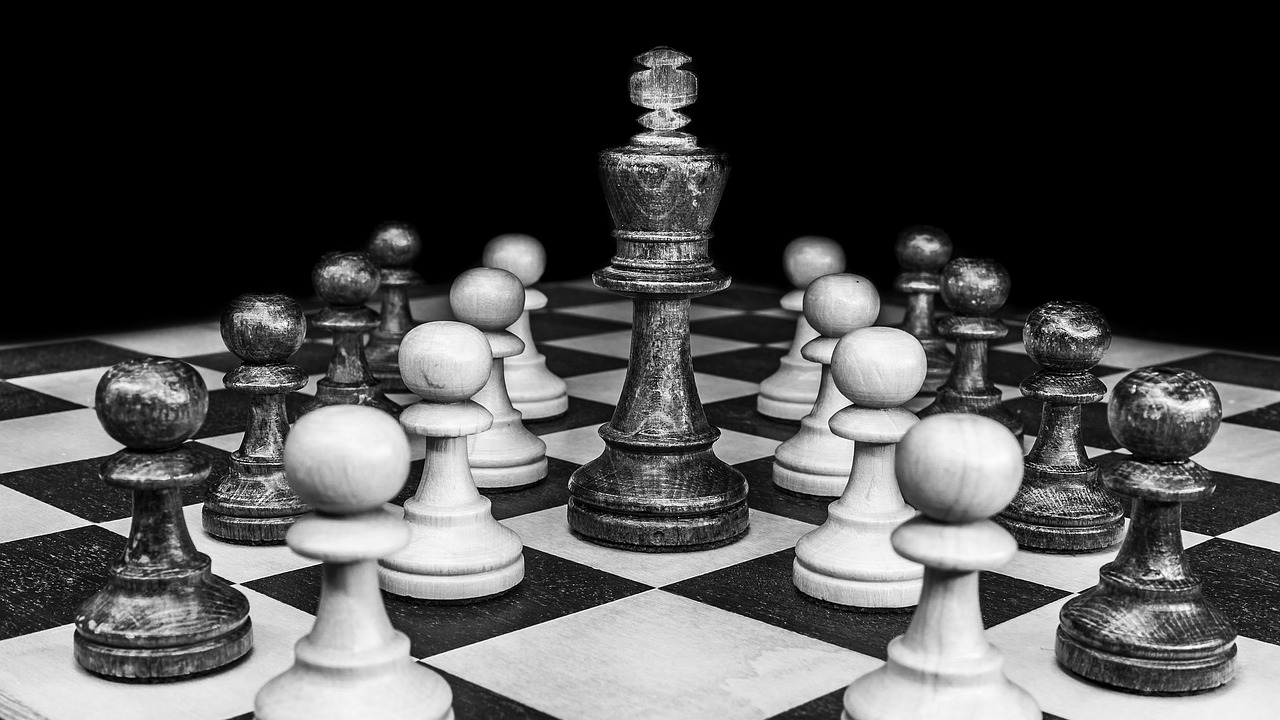
Putin’s difficulties are plenty and mounting
By Vladimir Milov June 04, 2024

Recent changes made by Putin in his government have prompted many unwarranted conclusions about his confidence in the current position and determination in his course with the war in Ukraine.
This is how most of the Western media interpreted to the appointment of technocratic economist Andrey Belousov as Russia’s new Defense Minister. Commonplaces are the portrayals of Putin and his war machine as feeling strong and secure, with the only thing missing being a long‑term orientation — the lacuna to be fixed by Mr. Belousov.
The realities of the Russian military system, however, are strikingly different from that worldview. If one actually listens to Russian officials themselves and looks at the numbers, he would be presented with a picture of deep and urgent crisis and not that of a solid foundation requiring mere fine‑tuning for a lengthy war.
Putin’s war machine is showing several profound vulnerabilities.
Recent changes made by Putin in his government have prompted many unwarranted conclusions about his confidence in the current position and determination in his course with the war in Ukraine.
This is how most of the Western media interpreted to the appointment of technocratic economist Andrey Belousov as Russia’s new Defense Minister. Commonplaces are the portrayals of Putin and his war machine as feeling strong and secure, with the only thing missing being a long‑term orientation — the lacuna to be fixed by Mr. Belousov.
The realities of the Russian military system, however, are strikingly different from that worldview. If one actually listens to Russian officials themselves and looks at the numbers, he would be presented with a picture of deep and urgent crisis and not that of a solid foundation requiring mere fine‑tuning for a lengthy war.
Putin’s war machine is showing several profound vulnerabilities.
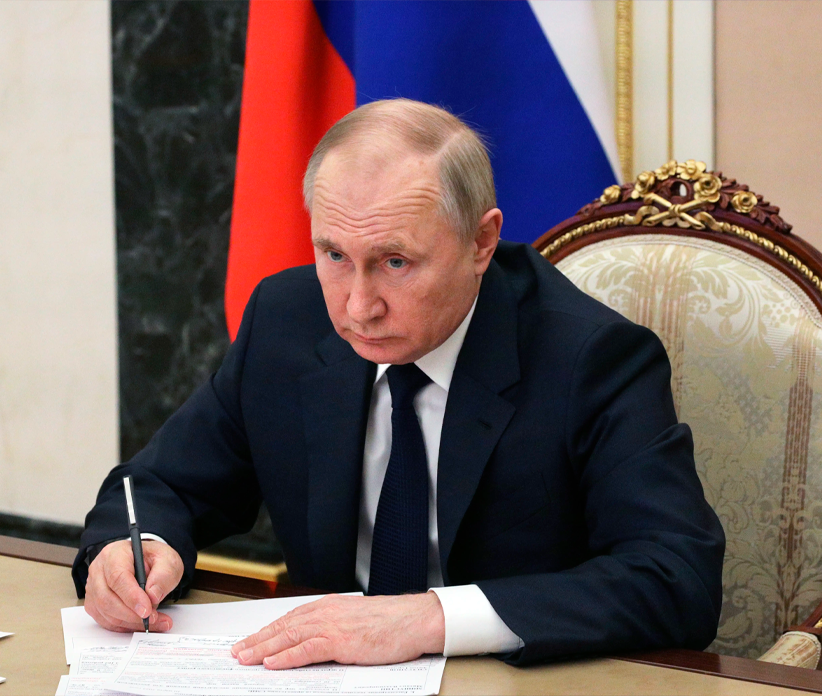

Take a look, for instance, at the recent interview to RBC by Sergey Chemezov, one of Putin’s closest associates and the CEO of Rostec, Russia’s largest producer of weapons.
Rostec is the sixth largest Russian company by revenue, and the largest beneficiary of the state’s military spending. According to Chemezov, the corporation receives over 50% of the total Russia’s budget allocated for weapons and ammunition procurement. Rostec’s military revenue in 2023 was around RUR 1.9 trillion, or about 30% of the total Russian military budget of RUR 6.4 trillion.
Chemezov’s interview is strikingly revealing. He speaks about Russian military industry being essentially non‑profitable, with the average profitability at just 2.28%.
Chemezov admits that such margin is “absolutely insufficient for development”, and that Rostec enterprises are operating “in a survival mode”. With current interest rates of 18–20% military enterprises can’t afford to take on new bank loans, unless they are subsidized by the government.
He also claims that the share of barter in transactions for Rostec is as high as 25%. This means that the Western sanctions are taking a heavy toll on the Russian military industries, significantly increasing transaction cost of such non‑cash operations.
Take a look, for instance, at the recent interview to RBC by Sergey Chemezov, one of Putin’s closest associates and the CEO of Rostec, Russia’s largest producer of weapons.
Rostec is the sixth largest Russian company by revenue, and the largest beneficiary of the state’s military spending. According to Chemezov, the corporation receives over 50% of the total Russia’s budget allocated for weapons and ammunition procurement. Rostec’s military revenue in 2023 was around RUR 1.9 trillion, or about 30% of the total Russian military budget of RUR 6.4 trillion.
Chemezov’s interview is strikingly revealing. He speaks about Russian military industry being essentially non‑profitable, with the average profitability at just 2.28%.
Chemezov admits that such margin is “absolutely insufficient for development”, and that Rostec enterprises are operating “in a survival mode”. With current interest rates of 18–20% military enterprises can’t afford to take on new bank loans, unless they are subsidized by the government.
He also claims that the share of barter in transactions for Rostec is as high as 25%. This means that the Western sanctions are taking a heavy toll on the Russian military industries, significantly increasing transaction cost of such non‑cash operations.
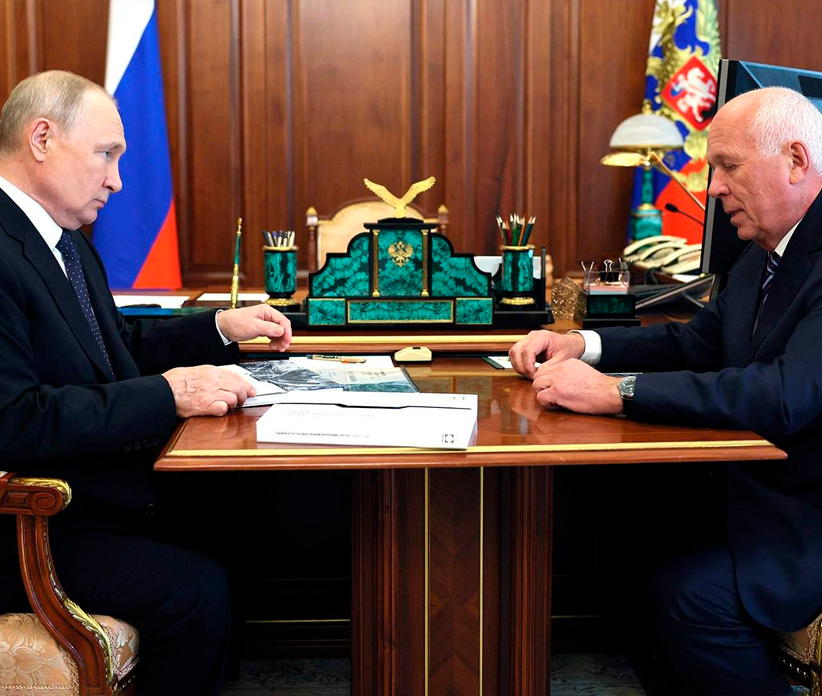

The low profitability is a critical factor. Because there’s no access to cheap credit, profits for the Russian companies, and military industries are no exception, is the only available source to finance fixed investment. No fixed investment means contraction of output in the near future, and a constrained ability to produce weapons and ammunition.
Chemezov’s proposals on ways to solve the low profitability challenge are, for now, focused on allowing the enterprises to keep the profits derived from cutting costs.
The current arrangement supposes overall budget reduction if costs go down. Chemezov proposes that the enterprises are allowed to keep the benefits from slashed costs.
However, given the huge overhead costs of the Russian military industries (factories historically maintain excessive infrastructure), high corruption, the lack of transparency and modern governance culture, absence of competition, this idea seems highly unlikely to succeed.
The looming low profitability problem, instead, will most likely quite soon force the Government to raise military spending significantly once again.
The low profitability is a critical factor. Because there’s no access to cheap credit, profits for the Russian companies, and military industries are no exception, is the only available source to finance fixed investment. No fixed investment means contraction of output in the near future, and a constrained ability to produce weapons and ammunition.
Chemezov’s proposals on ways to solve the low profitability challenge are, for now, focused on allowing the enterprises to keep the profits derived from cutting costs.
The current arrangement supposes overall budget reduction if costs go down. Chemezov proposes that the enterprises are allowed to keep the benefits from slashed costs.
However, given the huge overhead costs of the Russian military industries (factories historically maintain excessive infrastructure), high corruption, the lack of transparency and modern governance culture, absence of competition, this idea seems highly unlikely to succeed.
The looming low profitability problem, instead, will most likely quite soon force the Government to raise military spending significantly once again.
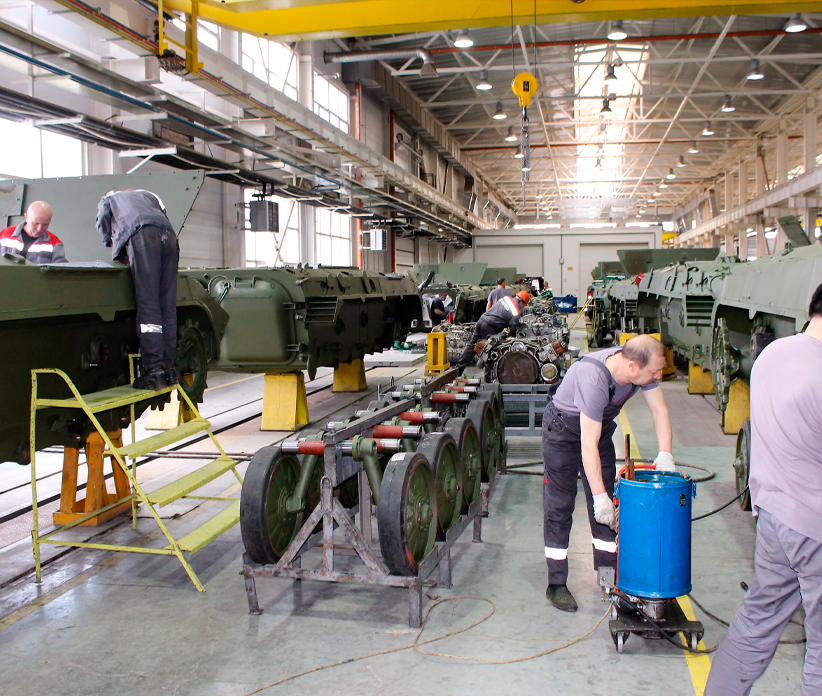

Conflicts between the Russian Ministry of Defense and the military industries regarding costs of delivery of weapons and ammunition are not a new phenomenon.
Over a decade ago, former Defense Minister Anatoly Serdyukov was fired following years‑long conflict with the military manufacturers who insisted on increasing prices for their products, which Serdyukov opposed.
Putin himself complained about uncontrollable costs of military manufacturers in his address to Federal Assembly back in 2014:
Conflicts between the Russian Ministry of Defense and the military industries regarding costs of delivery of weapons and ammunition are not a new phenomenon.
Over a decade ago, former Defense Minister Anatoly Serdyukov was fired following years‑long conflict with the military manufacturers who insisted on increasing prices for their products, which Serdyukov opposed.
Putin himself complained about uncontrollable costs of military manufacturers in his address to Federal Assembly back in 2014:
“Diversion or embezzlement of budget funds allocated for federal defense contracts should be treated as a direct threat to national security and dealt with seriously and severely… We have just held our regular meeting in Sochi with the leadership of the Defense Ministry, combat arms and services commanders and leading defense company designers. On certain positions, prices double, triple or quadruple, and in one case they grew 11 times. You realize that this has nothing to do with inflation or with anything, considering that practically 100 percent of funding is provided in advance.”
“Diversion or embezzlement of budget funds allocated for federal defense contracts should be treated as a direct threat to national security and dealt with seriously and severely… We have just held our regular meeting in Sochi with the leadership of the Defense Ministry, combat arms and services commanders and leading defense company designers. On certain positions, prices double, triple or quadruple, and in one case they grew 11 times. You realize that this has nothing to do with inflation or with anything, considering that practically 100 percent of funding is provided in advance.”
As Chemezov’s RBC interview indicates, little has changed since ten years ago. Military contractors can barely make ends meet on the background of military spending increasing by 3 times in 2024 as compared to 2021.
As Chemezov’s RBC interview indicates, little has changed since ten years ago. Military contractors can barely make ends meet on the background of military spending increasing by 3 times in 2024 as compared to 2021.
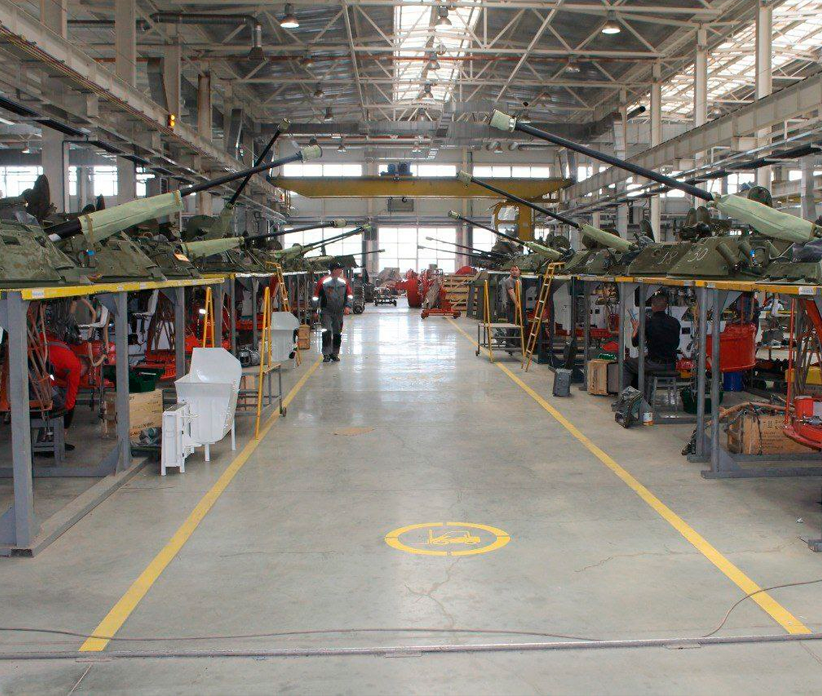

The economic inefficiency problem is actually a central part of design of the system that Putin and Chemezov have built over the years. It has eliminated all competition in the defense industry and erected a handful of top‑down monopolies in military manufacturing (Rostec, United Aircraft Corporation, Tactical Missiles Corporation, United Engine Corporation, etc.).
Putin and Chemezov should know that market monopolies are not the best model to guarantee cutting costs and increasing efficiency. Instead, these talented Russian statesmen have been spending more time bemoaning the collapse of the USSR, rather than studying up on economics.
It is worth noting that Russia’s defense industry — and not the military itself -is the largest recipient of the Russian military spending. It receives between 60–70% of the total Russian military budget.
While most of it is classified, estimates can be made based on known figures of the income of military enterprises, and some of the figures provided by Russian officials themselves.
In Chemezov’s interview, for example, he provides at estimate of the total Rostec’s share in military hardware procurement, which allows to calculate the overall figure given the publicly known figure of Rostec’s military revenue.
The economic inefficiency problem is actually a central part of design of the system that Putin and Chemezov have built over the years. It has eliminated all competition in the defense industry and erected a handful of top‑down monopolies in military manufacturing (Rostec, United Aircraft Corporation, Tactical Missiles Corporation, United Engine Corporation, etc.).
Putin and Chemezov should know that market monopolies are not the best model to guarantee cutting costs and increasing efficiency. Instead, these talented Russian statesmen have been spending more time bemoaning the collapse of the USSR, rather than studying up on economics.
It is worth noting that Russia’s defense industry — and not the military itself -is the largest recipient of the Russian military spending. It receives between 60–70% of the total Russian military budget.
While most of it is classified, estimates can be made based on known figures of the income of military enterprises, and some of the figures provided by Russian officials themselves.
In Chemezov’s interview, for example, he provides at estimate of the total Rostec’s share in military hardware procurement, which allows to calculate the overall figure given the publicly known figure of Rostec’s military revenue.
Therefore, the Russian Ministry of Defense is merely an intermediary transferring most of its budget to the defense industry, who is the real beneficiary of state’s military spending.
Therefore, the Russian Ministry of Defense is merely an intermediary transferring most of its budget to the defense industry, who is the real beneficiary of state’s military spending.
Chemezov has greatly strengthened his political position with the appointment of the new cabinet.
His loyalist protégée Denis Manturov was promoted to the First Deputy PM rank (de‑facto a shadow premier, the figure who has superiority over all other Deputy PMs and Ministers), got rid of the oversight by now former First Deputy PM Belousov, and was granted an audience with Putin on May 11 together with Chemezov, discussing the strategy of the new Cabinet a day before it was appointed in remarkable absence of PM Mishustin and new Defense Minister Belousov.
Chemezov has greatly strengthened his political position with the appointment of the new cabinet.
His loyalist protégée Denis Manturov was promoted to the First Deputy PM rank (de‑facto a shadow premier, the figure who has superiority over all other Deputy PMs and Ministers), got rid of the oversight by now former First Deputy PM Belousov, and was granted an audience with Putin on May 11 together with Chemezov, discussing the strategy of the new Cabinet a day before it was appointed in remarkable absence of PM Mishustin and new Defense Minister Belousov.
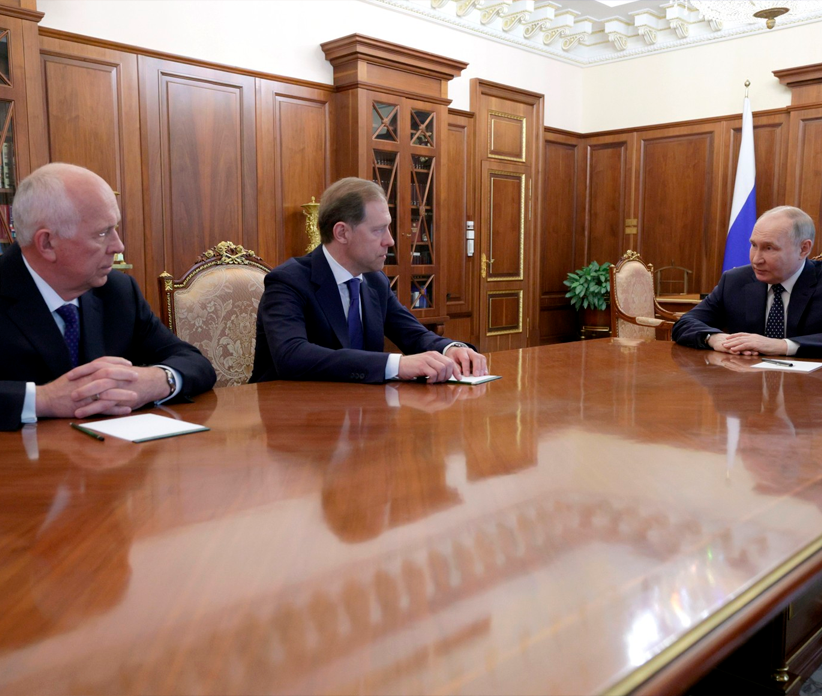

The tone of Chemezov’s interview, which followed just days later, suggests that Rostec’s CEO considers himself to be so influential that he is announcing tasks for the Government and the new Defense Minister.
Chemezov commands a much wider lobbyist network in the Russian governance system. The newly appointed Minister of Industry and Trade, former Kaliningrad governor Anton Alikhanov, is a former subordinate of Manturov in the same Ministry and is widely considered to be part of Chemezov’s entourage.
Another former advisor to Chemezov, Vladimir Gutenyov, is now chairing the State Duma Committee on Industry and Trade, which handles all appropriations for military industries requiring parliamentary approval.
The tone of Chemezov’s interview, which followed just days later, suggests that Rostec’s CEO considers himself to be so influential that he is announcing tasks for the Government and the new Defense Minister.
Chemezov commands a much wider lobbyist network in the Russian governance system. The newly appointed Minister of Industry and Trade, former Kaliningrad governor Anton Alikhanov, is a former subordinate of Manturov in the same Ministry and is widely considered to be part of Chemezov’s entourage.
Another former advisor to Chemezov, Vladimir Gutenyov, is now chairing the State Duma Committee on Industry and Trade, which handles all appropriations for military industries requiring parliamentary approval.
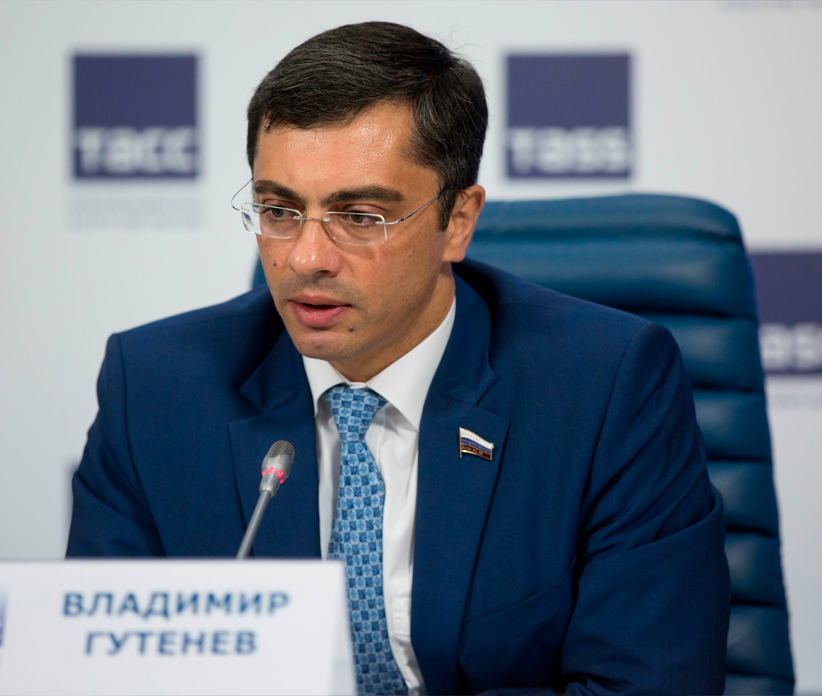

The rise of Chemezov offers a hint about possible motives behind sacking of Minister of Defense Sergey Shoygu.
In the recent months, Shoygu has been publicly scolding Chemezov’s military factories for failing to deliver quality products to the military on time. During a gathering at the MoD on May 1, Shoygu went as far as to say that volumes and quality of weapons and military equipment supplied to the troops are insufficient for a large‑scale offensive.
This direct attack on Chemezov may have cost him his post, similarly to the way it did to Minister Anatoly Serdyukov 12 years ago.
To reiterate, the new Defense Minister Andrey Belousov is not in full control of his own Ministry’s budget. Most of the budget is transferred by default to the defense industry headed by powerful lobbyists such as Chemezov, who push for increase in allocations to his enterprises, citing near‑zero profitability.
This arrangement does reflect Putin’s confidence or a focus on long‑term planning. Instead, it is a ticking bomb, a setup for an inevitable conflict between the government and defense industry over a budgetary bloat.
The rise of Chemezov offers a hint about possible motives behind sacking of Minister of Defense Sergey Shoygu.
In the recent months, Shoygu has been publicly scolding Chemezov’s military factories for failing to deliver quality products to the military on time. During a gathering at the MoD on May 1, Shoygu went as far as to say that volumes and quality of weapons and military equipment supplied to the troops are insufficient for a large‑scale offensive.
This direct attack on Chemezov may have cost him his post, similarly to the way it did to Minister Anatoly Serdyukov 12 years ago.
To reiterate, the new Defense Minister Andrey Belousov is not in full control of his own Ministry’s budget. Most of the budget is transferred by default to the defense industry headed by powerful lobbyists such as Chemezov, who push for increase in allocations to his enterprises, citing near‑zero profitability.
This arrangement does reflect Putin’s confidence or a focus on long‑term planning. Instead, it is a ticking bomb, a setup for an inevitable conflict between the government and defense industry over a budgetary bloat.
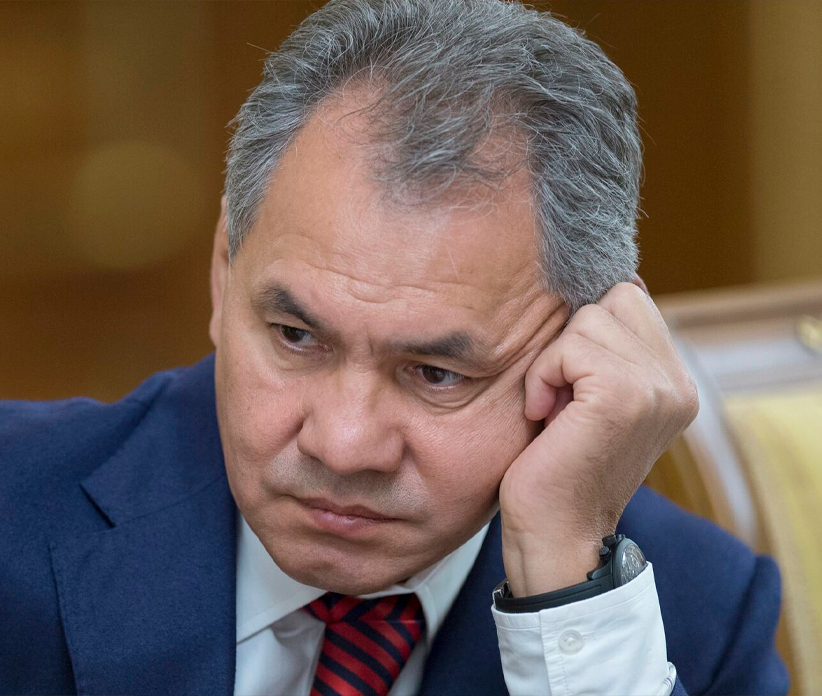

A similar conflict took place in Russia in 2011–2012 and ended with a crushing defeat of the civilian Minister of Defense Anatoly Serduykov (who now works for Chemezov, by the way), and a sweeping victory for military industries, who have over subsequent years enjoyed increasing budgets just as they wanted and failing to bring down costs or increase efficiency.
It is hard to imagine Belousov succeeding in an almost identical standoff against an ever‑powerful military producers’ lobby. Belousov completely lacks military and industrial experience -he has only worked as a laboratory academic and a bureaucrat career.
He does not have a strong team that he can bring to the Ministry. Against him, there is a powerful CEO of a multi‑billion-dollar corporation, who was senior in rank to Putin during their concurrent service at the KGB in East Germany in the 1980s. And now that big boss demands more money.
A similar conflict took place in Russia in 2011–2012 and ended with a crushing defeat of the civilian Minister of Defense Anatoly Serduykov (who now works for Chemezov, by the way), and a sweeping victory for military industries, who have over subsequent years enjoyed increasing budgets just as they wanted and failing to bring down costs or increase efficiency.
It is hard to imagine Belousov succeeding in an almost identical standoff against an ever‑powerful military producers’ lobby. Belousov completely lacks military and industrial experience -he has only worked as a laboratory academic and a bureaucrat career.
He does not have a strong team that he can bring to the Ministry. Against him, there is a powerful CEO of a multi‑billion-dollar corporation, who was senior in rank to Putin during their concurrent service at the KGB in East Germany in the 1980s. And now that big boss demands more money.
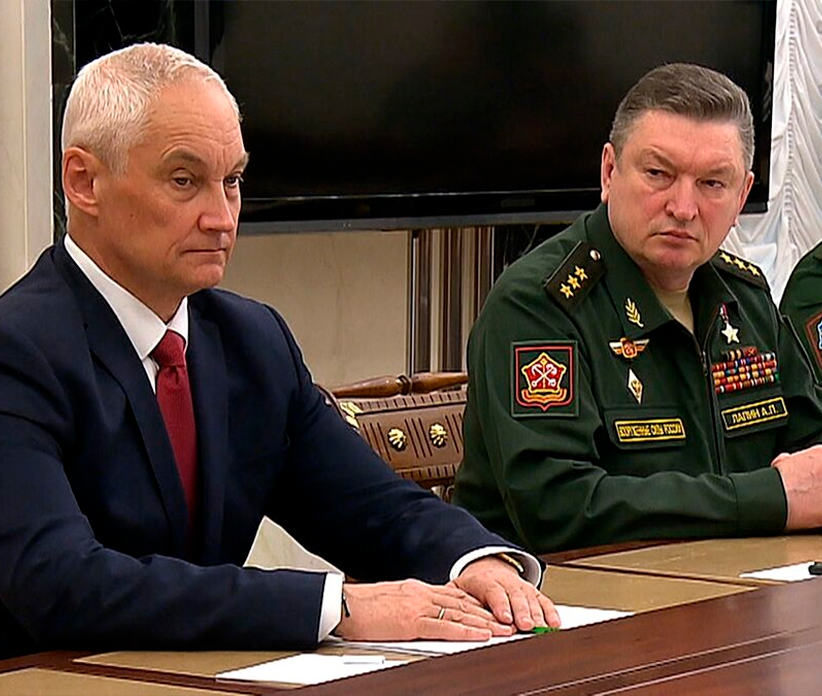

There are other factors limiting Belousov’s room for maneuver.
The estimated 20% of the military budget are personnel costs. The new Minister will not be able to cut those. Most likely, he will actually be forced to increase the spending on military pay. Russia is facing a raging inflation which the Russian Central Bank is not able to bring under control.
The MoD will have to index military salaries accordingly. Additionally, the government is forced to rapidly increase the price tag for a sign‑up bonus for the MoD contractors. In several regions, this one‑time payment has reached 1 million rubles, up 5 times since 2022, in a clear indication that the public interest in volunteering for the military service is quite low.
Because this interest won’t be getting any stronger, MoD will have to continue raising the incentives.
There are other factors limiting Belousov’s room for maneuver.
The estimated 20% of the military budget are personnel costs. The new Minister will not be able to cut those. Most likely, he will actually be forced to increase the spending on military pay. Russia is facing a raging inflation which the Russian Central Bank is not able to bring under control.
The MoD will have to index military salaries accordingly. Additionally, the government is forced to rapidly increase the price tag for a sign‑up bonus for the MoD contractors. In several regions, this one‑time payment has reached 1 million rubles, up 5 times since 2022, in a clear indication that the public interest in volunteering for the military service is quite low.
Because this interest won’t be getting any stronger, MoD will have to continue raising the incentives.
The only area where Belousov may have some room for maneuver are the supplies for the army. While speaking at the Federation Council during his confirmation hearing, Belousov came across as a Minister of Supplies of the army, rather than a full‑fledged Minister of Defense. Perhaps, fixing the broken supply system is his main mandate.
The only area where Belousov may have some room for maneuver are the supplies for the army. While speaking at the Federation Council during his confirmation hearing, Belousov came across as a Minister of Supplies of the army, rather than a full‑fledged Minister of Defense. Perhaps, fixing the broken supply system is his main mandate.
Supplies were clearly dysfunctional during the era of Sergey Shoygu, but it would be unfair to blame it only on corruption. Insufficient allocation on supplies is actually the main issue.
With well over 80% of the military budget spent on military industries and salaries of servicemen, not much is left. We are talking about a sum likely within 1 trillion rubles, or just around $10 billion. And that is a sum that is supposed to cover all the supplies, including fuel, electricity and heat, uniforms, food, transport, from Kaliningrad to Vladivostok.
Corruption or no corruption, it is obvious that this amount just won’t fix the Russian army’s supply problem. If Belousov wants to make radical improvements here, he would need a radically increased supply budget.
Supplies were clearly dysfunctional during the era of Sergey Shoygu, but it would be unfair to blame it only on corruption. Insufficient allocation on supplies is actually the main issue.
With well over 80% of the military budget spent on military industries and salaries of servicemen, not much is left. We are talking about a sum likely within 1 trillion rubles, or just around $10 billion. And that is a sum that is supposed to cover all the supplies, including fuel, electricity and heat, uniforms, food, transport, from Kaliningrad to Vladivostok.
Corruption or no corruption, it is obvious that this amount just won’t fix the Russian army’s supply problem. If Belousov wants to make radical improvements here, he would need a radically increased supply budget.
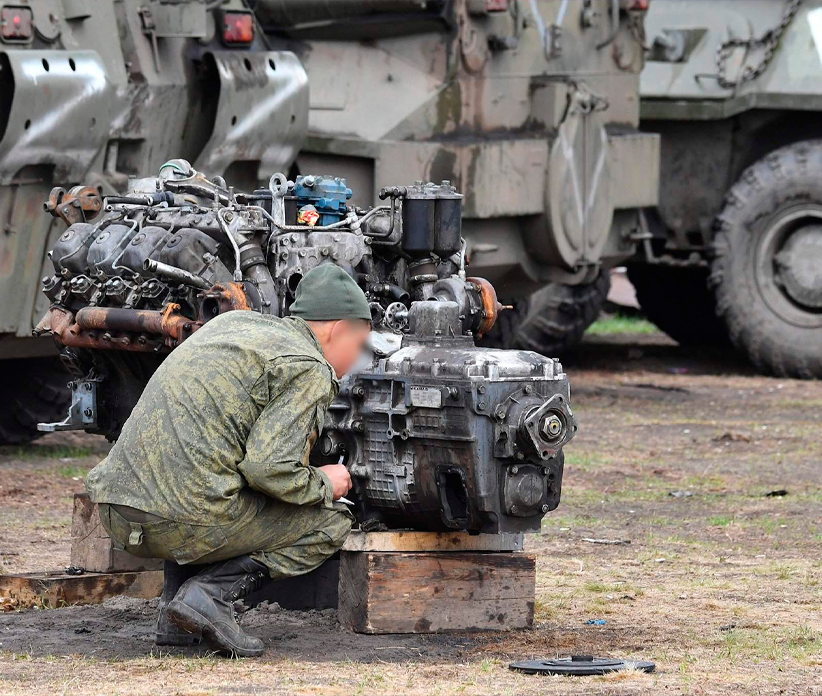

Belousov must come up with proposals to significantly increase military spending in order to satisfy Chemezov and military manufacturers, to secure salaries indexation according to high inflation and low volunteering demand, to fix the dysfunctional supply system.
This should probably be expected by August‑September when the new draft federal budget for 2025 will be discussed. The annual military spending would likely be increased from the current RUR 11 trillion to RUR 15 trillion at that point.
Can the state really sustain that rate of growth in military spending for the long term? Clearly not. Budgetary deficits are exploding. According to Russia’s Treasury, in January‑April 2024, federal budget deficit has reached RUR 4 trillion.
The available amount of cash in the liquidity portion of the National Wealth Fund (NWF) is just over RUR 5 trillion, shrinking by 40% since the beginning of the full‑scale invasion of Ukraine.
The government would most likely prefer not to fully spend it, reserving at least part of it for possible future shocks (for which purpose the fund was created in the first place).
Belousov must come up with proposals to significantly increase military spending in order to satisfy Chemezov and military manufacturers, to secure salaries indexation according to high inflation and low volunteering demand, to fix the dysfunctional supply system.
This should probably be expected by August‑September when the new draft federal budget for 2025 will be discussed. The annual military spending would likely be increased from the current RUR 11 trillion to RUR 15 trillion at that point.
Can the state really sustain that rate of growth in military spending for the long term? Clearly not. Budgetary deficits are exploding. According to Russia’s Treasury, in January‑April 2024, federal budget deficit has reached RUR 4 trillion.
The available amount of cash in the liquidity portion of the National Wealth Fund (NWF) is just over RUR 5 trillion, shrinking by 40% since the beginning of the full‑scale invasion of Ukraine.
The government would most likely prefer not to fully spend it, reserving at least part of it for possible future shocks (for which purpose the fund was created in the first place).
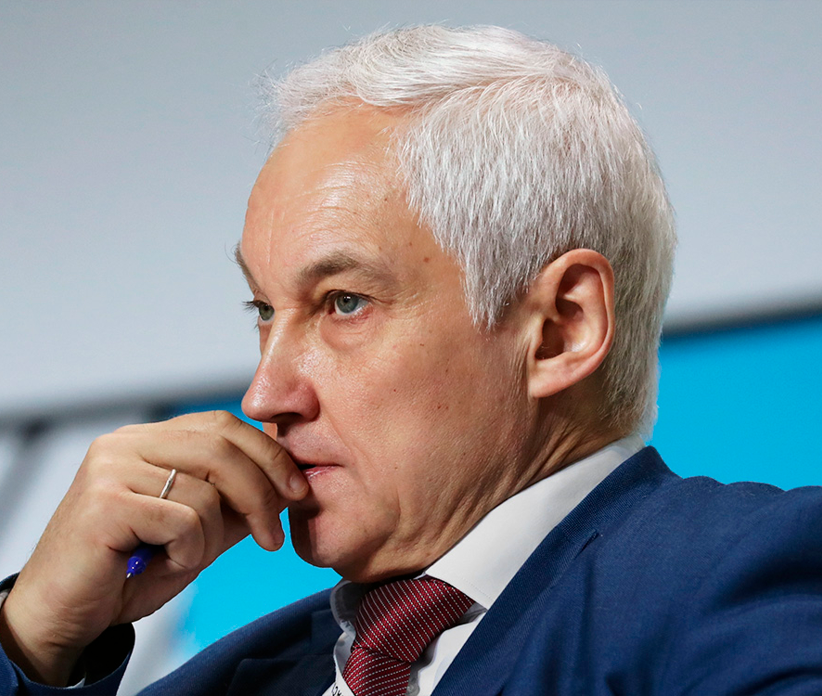

The non‑liquidity part of the NWF is invested in various corporate bonds and shares and is not easily recoverable. The government bond yields are skyrocketing so high that the Ministry of Finance is forced to cancel state bond offering auctions, costs of servicing state debt are skyrocketing (growth by 30% per year) even despite the fact that the overall level of debt is quite low.
In search for the cash needed to balance the budget and finance the war, the government ventured onto the menacing path of severe tax increases, which will clearly harm economic recovery and suppress investment.
Raising the profit tax from 20% to 25% alone is a major growth‑killer, as, in the absence of cheap credit, corporate profits is the major source of capital expenditure, well above 50% in the fourth quarter of 2023, as opposed to just 7% for bank loans.
Russia simply won’t be able to sustain the increased level of military spending for years to come. This is objective reality, against which no Belousov’s “genius” can offer a magic solution.
The non‑liquidity part of the NWF is invested in various corporate bonds and shares and is not easily recoverable. The government bond yields are skyrocketing so high that the Ministry of Finance is forced to cancel state bond offering auctions, costs of servicing state debt are skyrocketing (growth by 30% per year) even despite the fact that the overall level of debt is quite low.
In search for the cash needed to balance the budget and finance the war, the government ventured onto the menacing path of severe tax increases, which will clearly harm economic recovery and suppress investment.
Raising the profit tax from 20% to 25% alone is a major growth‑killer, as, in the absence of cheap credit, corporate profits is the major source of capital expenditure, well above 50% in the fourth quarter of 2023, as opposed to just 7% for bank loans.
Russia simply won’t be able to sustain the increased level of military spending for years to come. This is objective reality, against which no Belousov’s “genius” can offer a magic solution.
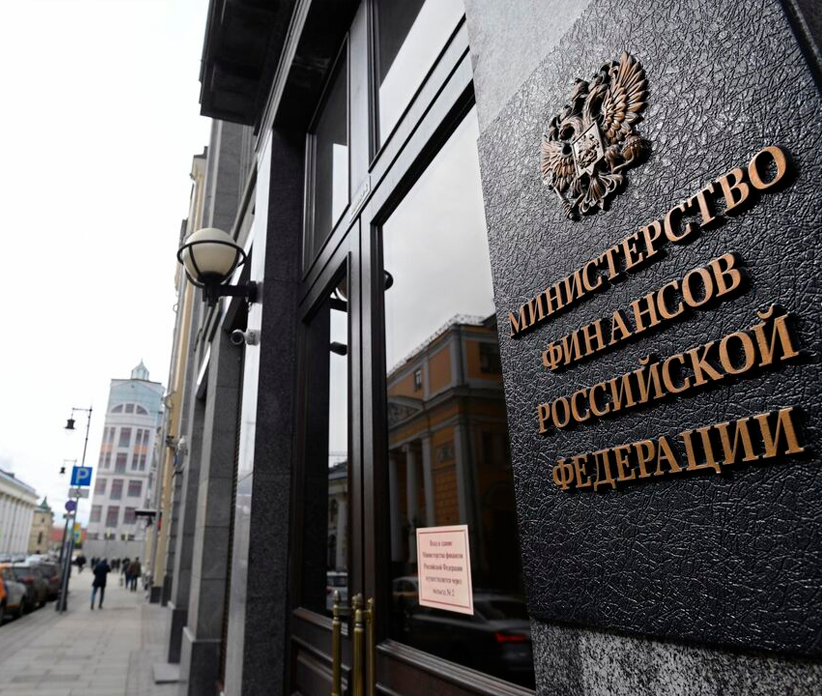

The extent of Belousov’s “genius” is clearly exaggerated by commentators enchanted with his technocrat charisma. Belousov has been occupying the positions of Putin’s top economist since 2008, when he was appointed chief of economics and finance department in the Cabinet of Ministers then led by Putin.
During all these years, Belousov was a staunch proponent of state interventionism, import substitution, major government investment in “national projects” (which were his invention to a large extent).
After all these years, it’s hard to point a single tangible success of these policies. Russian GDP in current dollars this year will be smaller than 10 years ago, as per IMF. Dependence on imports is still critical, particularly in more complex areas like industrial machinery of sophisticated finished products.
State investments and “national projects” failed to deliver the “Russian economic miracle” promised by Belousov. Where is his personal success story? Why are commentators so sure that he will achieve an utmost success in the new Defense Minister capacity, while he failed to achieve anything with his ideas as top economic positions after all these years?
There are more challenges Belousov is facing as the new Defense Minister. First, there’s the personnel challenge, which he admitted during his inaugural speech at the Federation Council. It doesn’t seem solvable in the long run.
The extent of Belousov’s “genius” is clearly exaggerated by commentators enchanted with his technocrat charisma. Belousov has been occupying the positions of Putin’s top economist since 2008, when he was appointed chief of economics and finance department in the Cabinet of Ministers then led by Putin.
During all these years, Belousov was a staunch proponent of state interventionism, import substitution, major government investment in “national projects” (which were his invention to a large extent).
After all these years, it’s hard to point a single tangible success of these policies. Russian GDP in current dollars this year will be smaller than 10 years ago, as per IMF. Dependence on imports is still critical, particularly in more complex areas like industrial machinery of sophisticated finished products.
State investments and “national projects” failed to deliver the “Russian economic miracle” promised by Belousov. Where is his personal success story? Why are commentators so sure that he will achieve an utmost success in the new Defense Minister capacity, while he failed to achieve anything with his ideas as top economic positions after all these years?
There are more challenges Belousov is facing as the new Defense Minister. First, there’s the personnel challenge, which he admitted during his inaugural speech at the Federation Council. It doesn’t seem solvable in the long run.
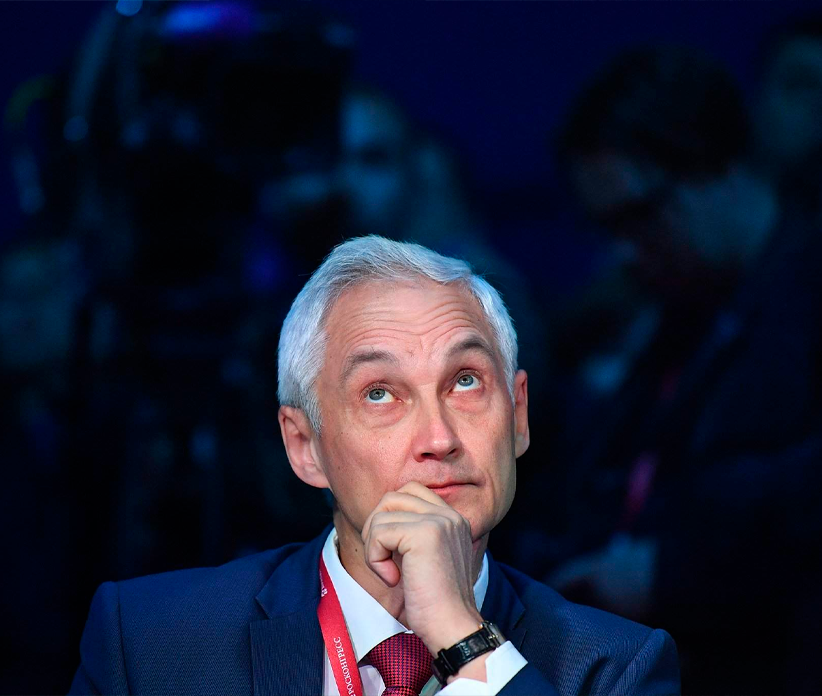

Many Western analysts take it as a given that Russia has “unlimited” human resources, citing the total numbers of the Russian population.
However, if one counts only men aged from 20 to 40, that’s only 20 million people, not 140 million. Of these, several million are already employed by military and security agencies, and several million are either abroad or unfit for service for health reasons.
Up to 1 million people currently have waivers from draft due to their importance for critical employers. This leaves Putin with quite a limited number of men available for drafting -it’s nowhere near the “unlimited manpower” narrative that is widespread in the West.
As we have seen in the fall of 2022, mobilization is an enormous shock to the already fragile labor market. When speaking about a new wave of mobilization of, say, 300,000 draftees, the figure should be multiplied by three to include evaders and people who would flee the country, which means that mobilization of 300,000 soldiers means that, effectively, around a million people would be (at least temporarily) erased from the labor market.
Many Western analysts take it as a given that Russia has “unlimited” human resources, citing the total numbers of the Russian population.
However, if one counts only men aged from 20 to 40, that’s only 20 million people, not 140 million. Of these, several million are already employed by military and security agencies, and several million are either abroad or unfit for service for health reasons.
Up to 1 million people currently have waivers from draft due to their importance for critical employers. This leaves Putin with quite a limited number of men available for drafting -it’s nowhere near the “unlimited manpower” narrative that is widespread in the West.
As we have seen in the fall of 2022, mobilization is an enormous shock to the already fragile labor market. When speaking about a new wave of mobilization of, say, 300,000 draftees, the figure should be multiplied by three to include evaders and people who would flee the country, which means that mobilization of 300,000 soldiers means that, effectively, around a million people would be (at least temporarily) erased from the labor market.
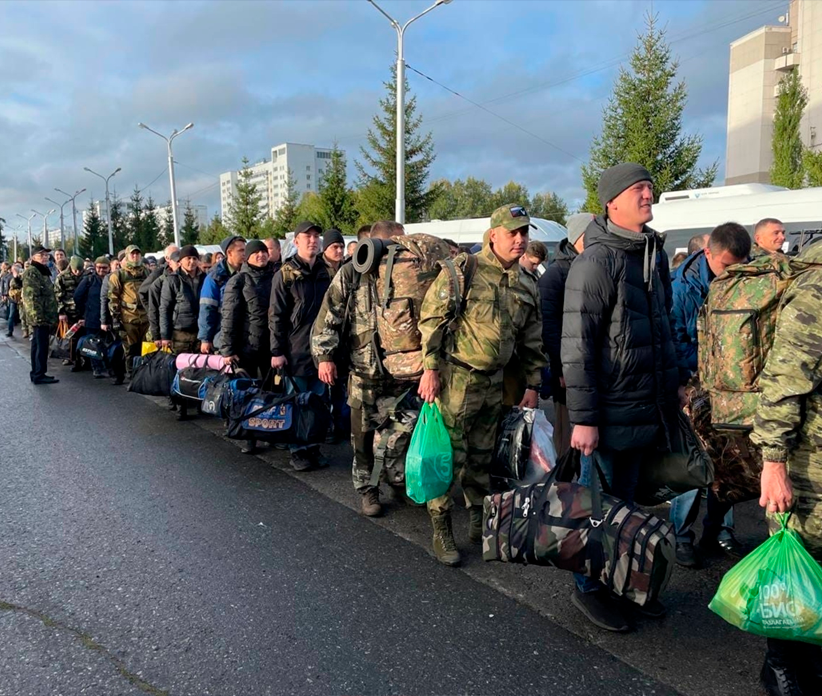

That’s an enormous stress for the economy. It is widely recognized by the Russian officials that deficit of skilled labor is one of the major challenges to the Russian economy at present.
This is the reason why Putin hasn’t called for another wave of mass mobilization for nearly two years since the first wave, and he may not do it at all, given the enormous pressure from this issue for the labor market.
The military has been trying to solve the personnel shortage issue through hiring volunteers for money, but, as we can judge from rapidly increasing price tag, it is not going too successfully.
The morale of the Russian troops at the frontline is extremely low, and desertions soar. Mediazona reports that, based on court hearings data, in March 2024, the number of cases against deserters grew to nearly 700 per month, which is just a tip of the iceberg.
Among those serving at the frontlines, there’s a significant share of men aged above 40, whose physical fitness for intensive offensive operations is questionable.
According to the Russian Minister of Defense, the average age of mobilized soldiers is as high as 35.These numbers do not support the notion of Putin having “unlimited human resources” to wage the war against Ukraine.
That’s an enormous stress for the economy. It is widely recognized by the Russian officials that deficit of skilled labor is one of the major challenges to the Russian economy at present.
This is the reason why Putin hasn’t called for another wave of mass mobilization for nearly two years since the first wave, and he may not do it at all, given the enormous pressure from this issue for the labor market.
The military has been trying to solve the personnel shortage issue through hiring volunteers for money, but, as we can judge from rapidly increasing price tag, it is not going too successfully.
The morale of the Russian troops at the frontline is extremely low, and desertions soar. Mediazona reports that, based on court hearings data, in March 2024, the number of cases against deserters grew to nearly 700 per month, which is just a tip of the iceberg.
Among those serving at the frontlines, there’s a significant share of men aged above 40, whose physical fitness for intensive offensive operations is questionable.
According to the Russian Minister of Defense, the average age of mobilized soldiers is as high as 35.These numbers do not support the notion of Putin having “unlimited human resources” to wage the war against Ukraine.
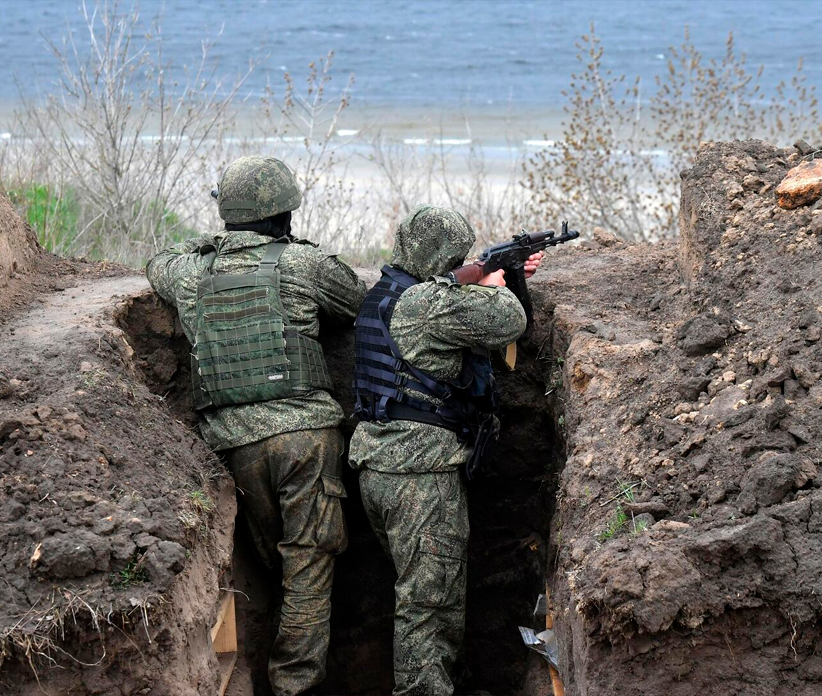

Russian defense industry is highly dependent on imports of technology, machinery, and component parts.
Some of the high precision machinery tools and CNC machines can’t be produced neither by Russia nor even by China, which is why Russia has been heavily reliant on Western technologies and component parts for its military production, and has been clandestinely importing equipment from the U.S. and Europe and even Taiwan to maintain production capabilities.
According to the Kyiv School of Economics, Russia imports a third of battlefield technology from Western companies.
If the West moves forward with cutting off these supplies of vital components and technology, it would significantly impair Russia’s ability to produce weapons and ammunition.
Russian defense industry is highly dependent on imports of technology, machinery, and component parts.
Some of the high precision machinery tools and CNC machines can’t be produced neither by Russia nor even by China, which is why Russia has been heavily reliant on Western technologies and component parts for its military production, and has been clandestinely importing equipment from the U.S. and Europe and even Taiwan to maintain production capabilities.
According to the Kyiv School of Economics, Russia imports a third of battlefield technology from Western companies.
If the West moves forward with cutting off these supplies of vital components and technology, it would significantly impair Russia’s ability to produce weapons and ammunition.
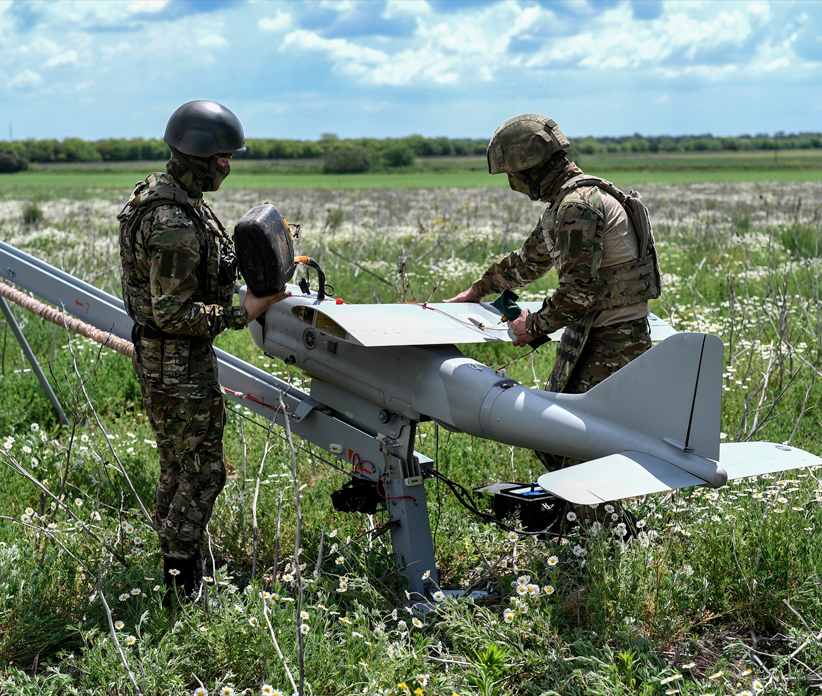

Moreover, the threat of Western secondary sanctions forces Chinese companies and banks to suspend or cut relations with Russian counterparts, and this trend has already reached a significant scale. In March‑April, Russian imports from China decreased by over 10% year‑on-year, primarily in the area of machinery and component parts for the industry.
In Spring, majority of payments for imports of Chinese electronics were blocked. All of this immediately affects Russia’s military production capabilities.
To sum it up, Putin does not have things in order with his war machine, with Belousov brought in for some minor finetuning. To the contrary, Russia’s military and adjacent industries are marred by deep structural crises, some of which may be unsolvable, and others requiring rapid depletion of scarce reserves.
Moreover, the threat of Western secondary sanctions forces Chinese companies and banks to suspend or cut relations with Russian counterparts, and this trend has already reached a significant scale. In March‑April, Russian imports from China decreased by over 10% year‑on-year, primarily in the area of machinery and component parts for the industry.
In Spring, majority of payments for imports of Chinese electronics were blocked. All of this immediately affects Russia’s military production capabilities.
To sum it up, Putin does not have things in order with his war machine, with Belousov brought in for some minor finetuning. To the contrary, Russia’s military and adjacent industries are marred by deep structural crises, some of which may be unsolvable, and others requiring rapid depletion of scarce reserves.


The new Defense Minister Andrey Belousov, therefore, was not appointed as a strategist for the long‑term war, but rather finds himself in the role of a crisis manager in a very difficult situation and in the crossfire of clashing interests.
It is worth noting that the 65‑year-old Belousov, has no experience in crisis management at all, and having no connection whatsoever with the military during his lifetime, lacks the authority within the military. He will most likely become the scapegoat for any similar to Anatoly Serdyukov.
Let’s look at the hard facts: Putin’s difficulties are plenty and mounting. Let’s intensify the pressure on Putin’s system through sanctions and military aid to Ukraine.
The new Defense Minister Andrey Belousov, therefore, was not appointed as a strategist for the long‑term war, but rather finds himself in the role of a crisis manager in a very difficult situation and in the crossfire of clashing interests.
It is worth noting that the 65‑year-old Belousov, has no experience in crisis management at all, and having no connection whatsoever with the military during his lifetime, lacks the authority within the military. He will most likely become the scapegoat for any similar to Anatoly Serdyukov.
Let’s look at the hard facts: Putin’s difficulties are plenty and mounting. Let’s intensify the pressure on Putin’s system through sanctions and military aid to Ukraine.
Vladimir Putin has yet again raised eyebrows by seriously reshuffling the government military and security leadership
By Vladimir Milov
May 13, 2024
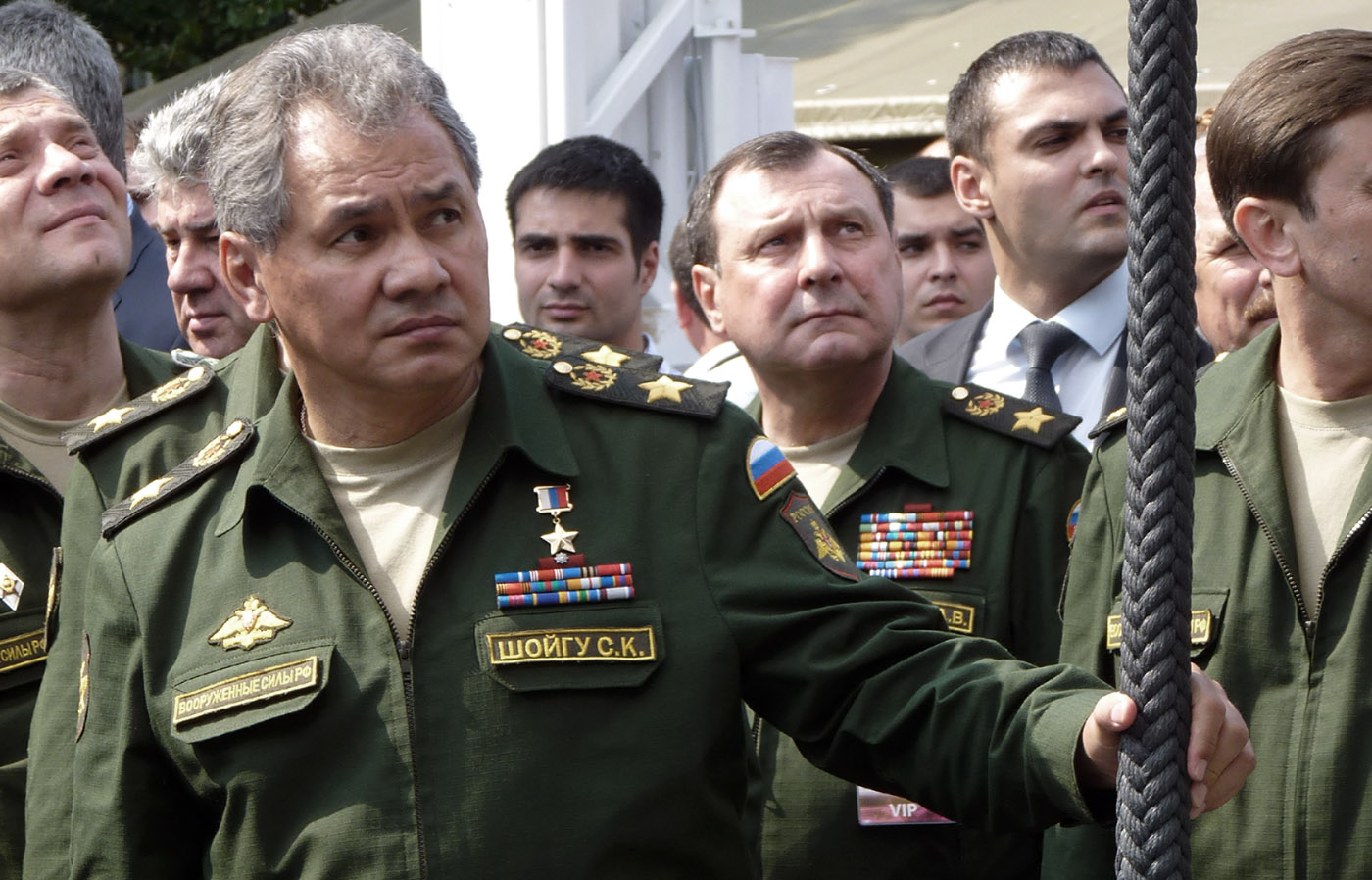 Article
Article Czar Broadcasts Panic
By Vladimir Milov
August 06, 2024
 Article
Article Debunking Putin’s lies about his war against Ukraine is essential to win the hearts and minds of the voters in the U.S. and beyond
By Vladimir Milov
February 17, 2024
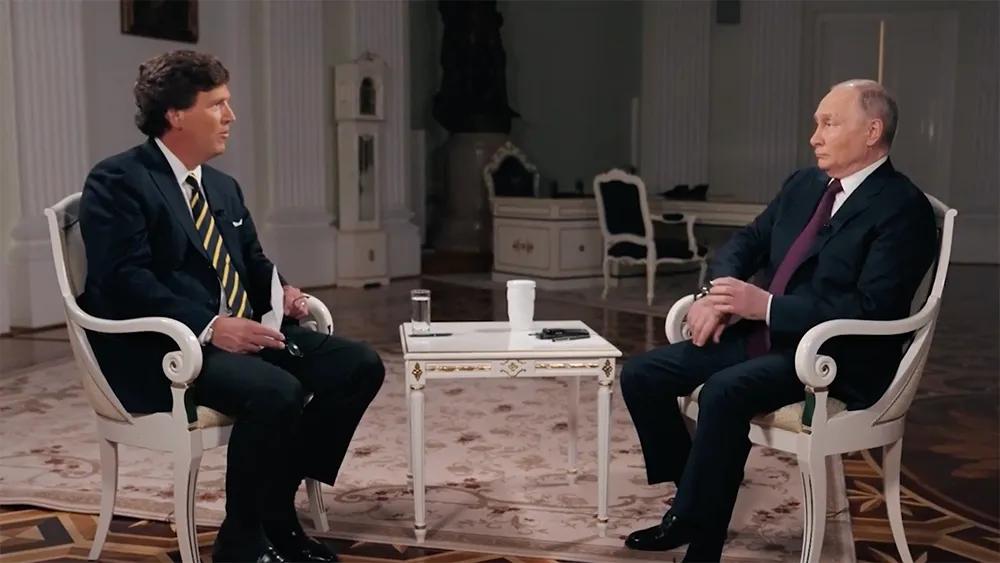
Vladimir Putin has yet again raised eyebrows by seriously reshuffling the government military and security leadership
By Vladimir Milov
May 13, 2024
 Article
Article Czar Broadcasts Panic
By Vladimir Milov
August 06, 2024
 Article
Article Debunking Putin’s lies about his war against Ukraine is essential to win the hearts and minds of the voters in the U.S. and beyond
By Vladimir Milov
February 17, 2024
